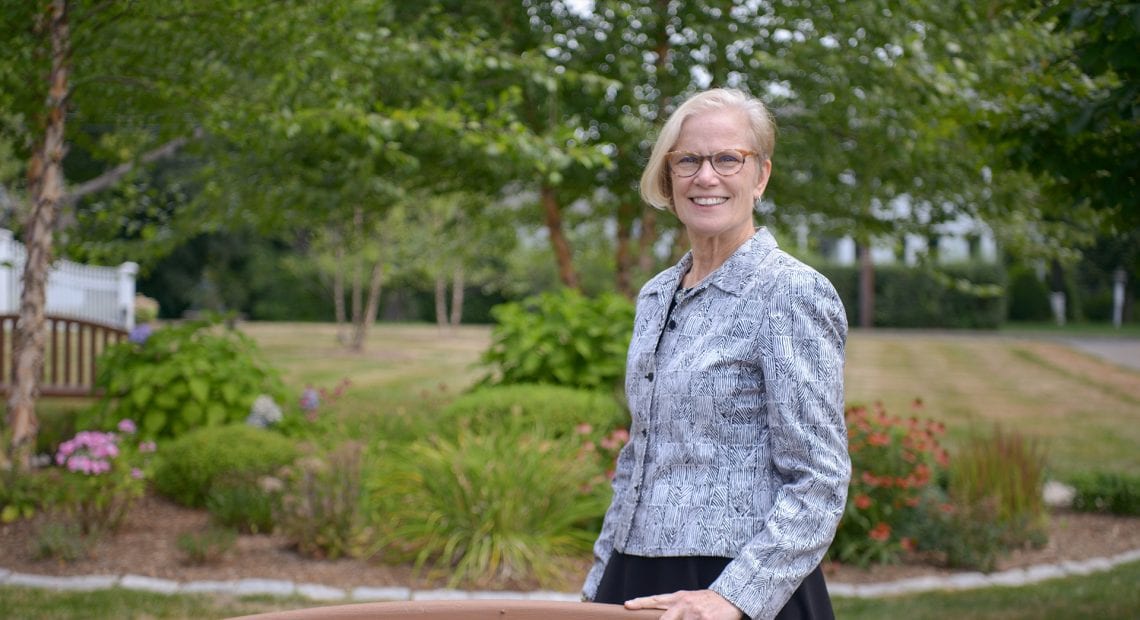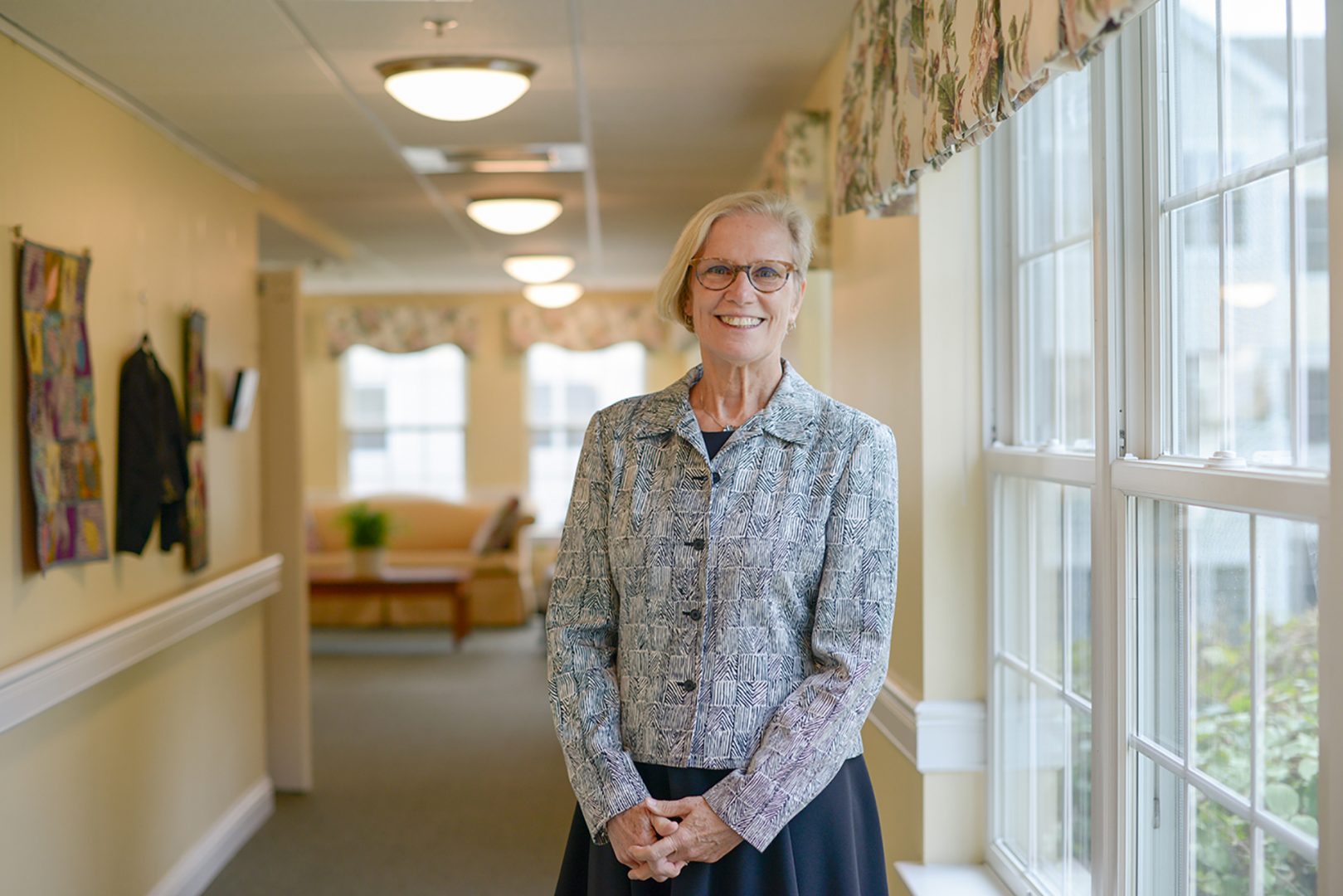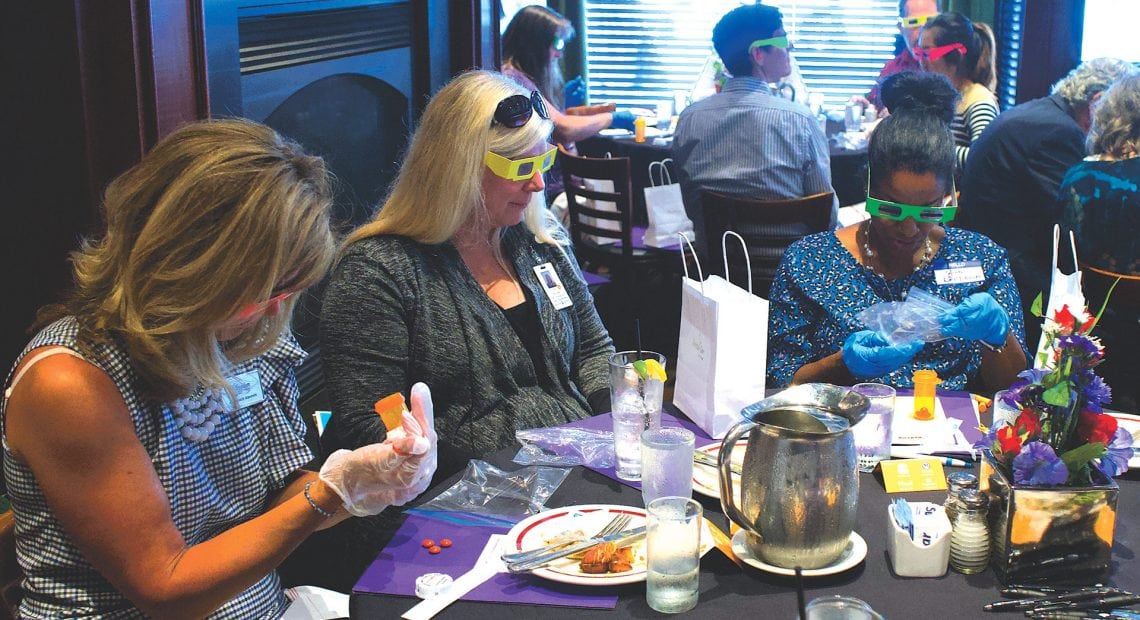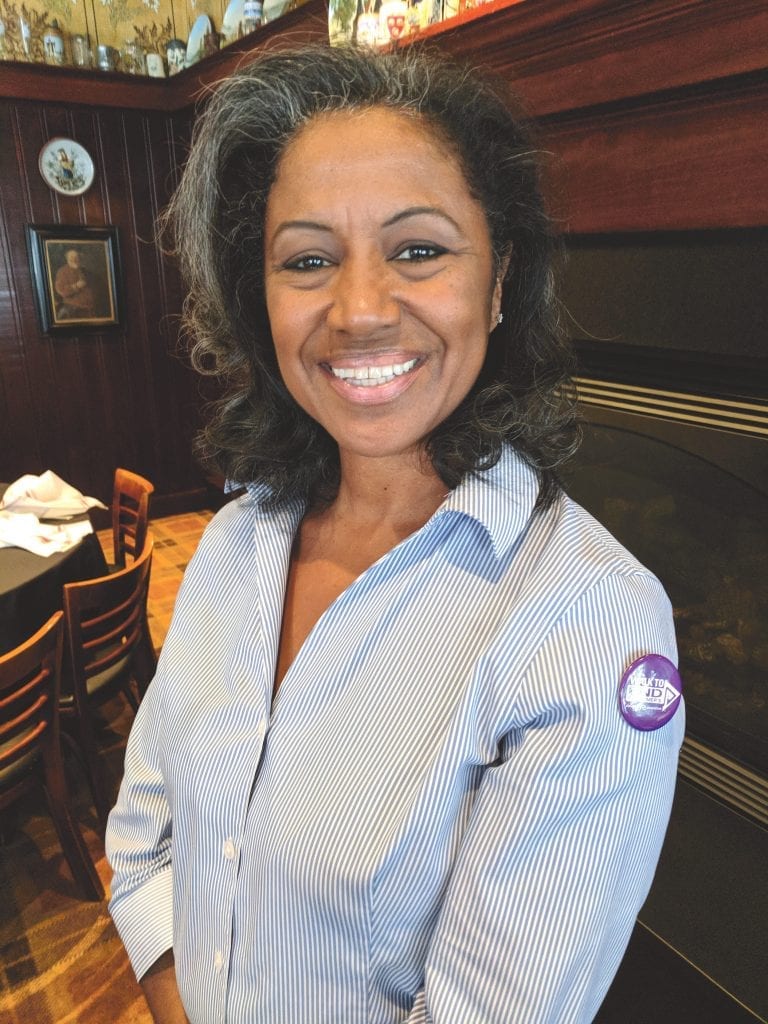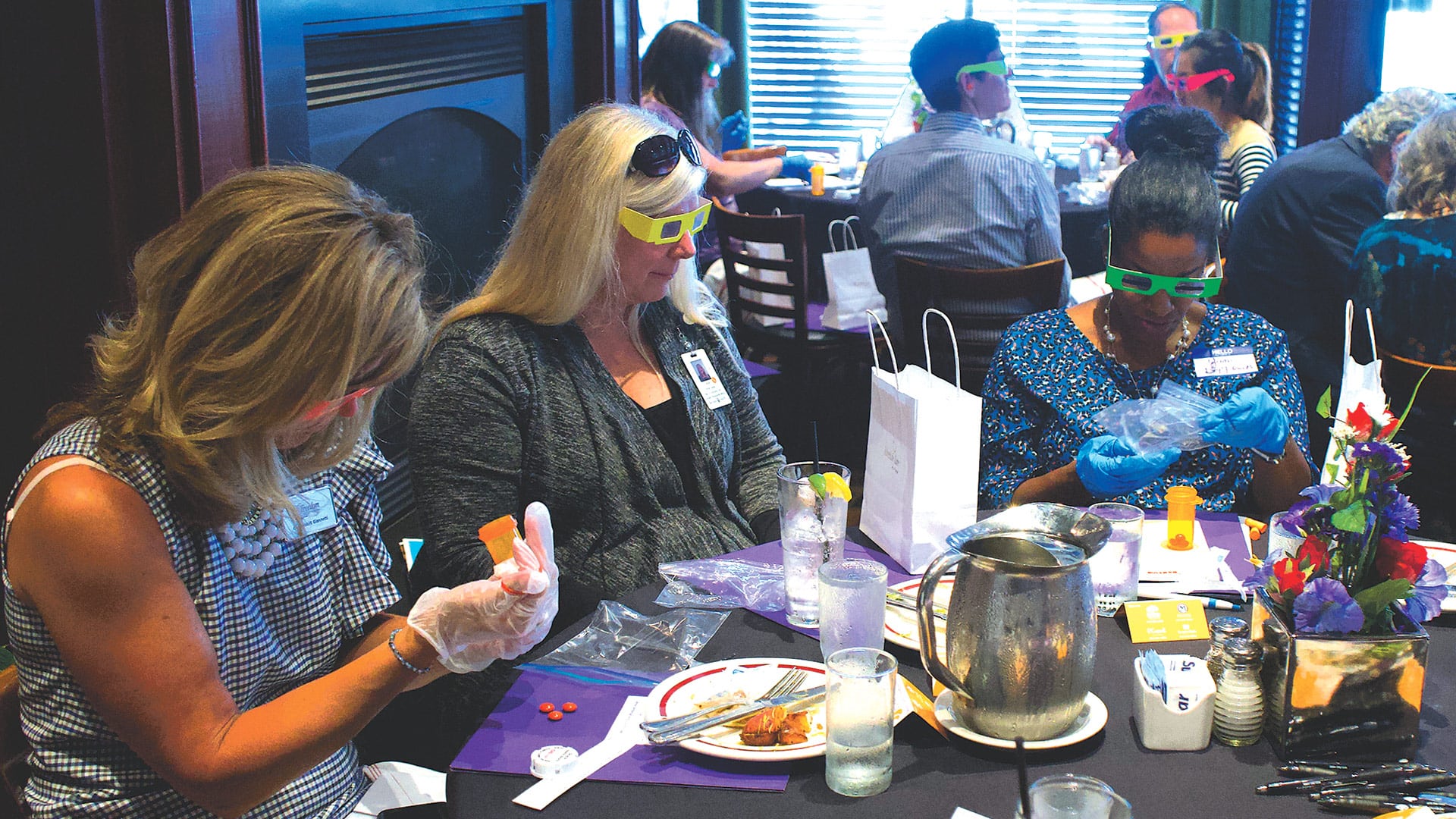Peace of Mind
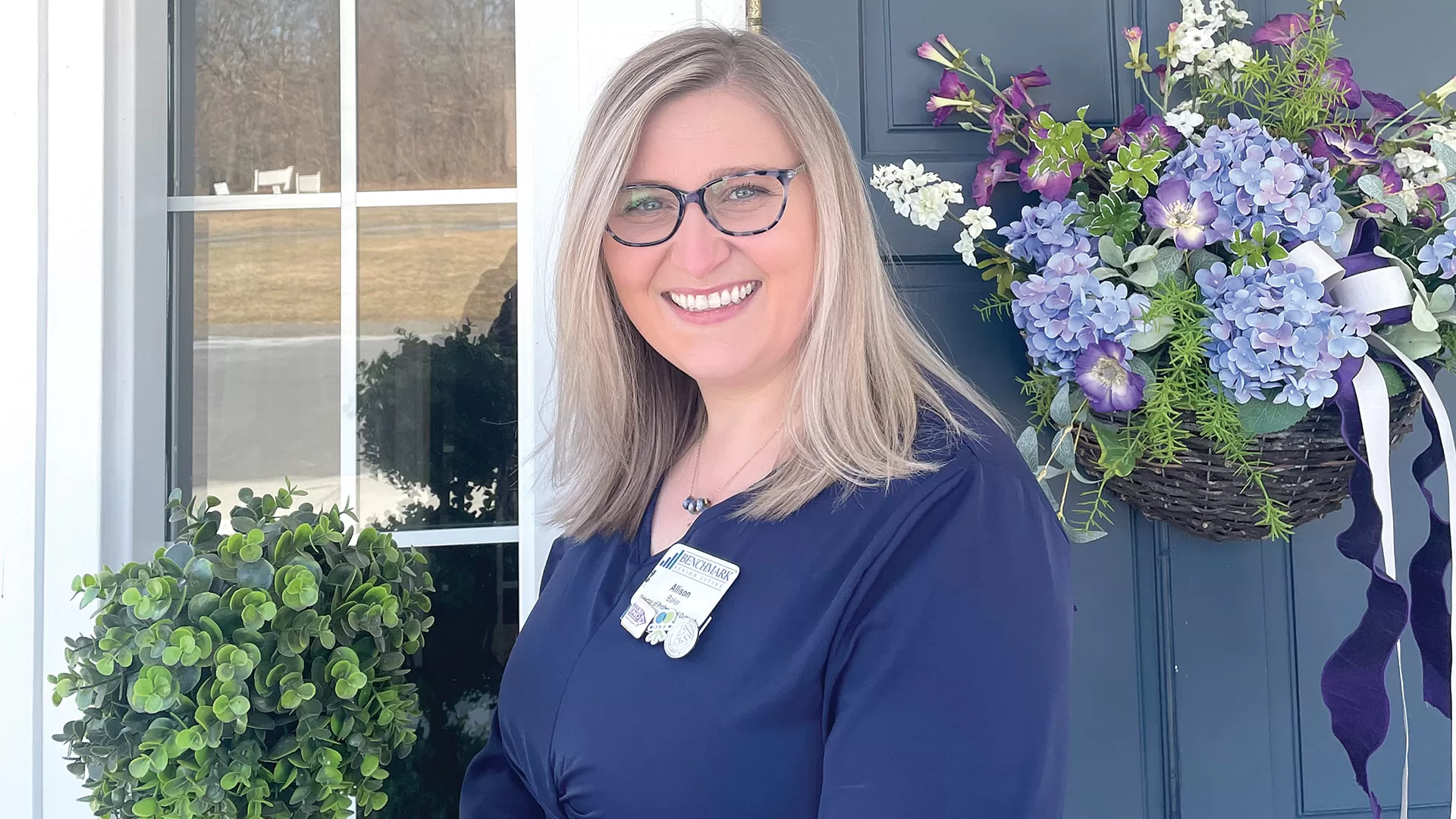
Allison Baker says the Atrium at Cardinal Drive aims to both give residents a high quality of life and take stress away from their loved ones.
It’s a moment so many families dread — until they come out on the other side.
“There’s a lot of anxiety. There’s a lot of guilt,” said Allison Baker, director of Community Relations at the Atrium at Cardinal Drive in Agawam, about the decision to move a loved one — usually a parent or spouse — into the assisted-living facility, which specializes in memory care.
“Families can feel like they might be giving up on their loved one by moving them to a setting like ours. And I think our challenge is to show that you’re not placing your loved one in a place just to live out the rest of their life. The point of our community is to give them the best quality of life.”
Cathy Ballini, executive director of Mason Wright Senior Living in Springfield, agreed.
“I always tell families, ‘nobody shops for this until they have to shop for this.’ And there’s a lot of guilt involved when you take parents out of their home. But you have to look at the bigger picture of what’s best for them.”
What often precedes that discussion, especially with individuals with Alzheimer’s disease or another dementia, is large quantities of “caregiver burnout,” Ballini added.
“When one or two people are caring for someone, there comes a time when something is sacrificed or suffers because you’re not providing this level of care. There’s only so much one person can do to keep someone entertained. There’s only so much the television can do.
Cathy Ballini
“That time they have left should be quality time. You’re taking the business end of the relationship and putting that on us so that you can truly enjoy your time with your with your parent, with your brother, with your spouse.”
“Coming here, they’re building friendships and trust with us so their relationship with the parent becomes what it should be,” she went on. “That time they have left should be quality time. You’re taking the business end of the relationship and putting that on us so that you can truly enjoy your time with your with your parent, with your brother, with your spouse.”
But what makes it quality time, and how does memory care differ from traditional assisted living?
Since it opened 26 years ago, the Atrium has featured two buildings with 22 apartments each, both dedicated to a memory-care model.
“We don’t divide residents based on their care level or their cognitive functioning,” Baker said. “With residents with memory loss or cognitive impairment, huge crowds can be overwhelming or overstimulating, so limiting the number of people is better for a resident. That’s why we have two neighborhoods. They have the same amenities — they both have a courtyard, they both have dining rooms, they both have the atrium area, they both have living rooms and sitting-room areas; they’re identical to one another.”
The Atrium aims to provide a level of care often associated with skilled-nursing facilities — such as two-person transfer assistance, feeding assistance, medication administration, and total care with all aspects of daily living — but in a home-like, assisted-living environment, she added. “It’s a little bit different model than most other communities, but the hope is that our residents can remain here in their home through end of life and not have to move to another setting.”
Mason Wright, like many assisted-living residences, has a neighborhood, called Reflections, dedicated to memory care on its third floor. There, “the caregivers build consistency and trust with the same people,” Ballini said. “The caregivers who are helping them out of bed in the morning are doing activities throughout the day and are serving meals to them. The routine is very important.”
That daily routine includes an extensive roster of activities that actively engage the mind. Residents in Reflections are able to join the rest of the Mason Wright community for events like entertainers, baking sessions, and other activities that anyone can enjoy, but also engage in activities exclusive to their neighborhood that are aimed at preserving cognition.
Laura Lavoie
“Some people contact me when they’re almost at the end of their rope and they just need somebody to say, ‘it’s OK. You’ve done a great job, but there needs to be more support around them 24/7, and you need to sleep.’”
At the Atrium, Baker said, “we’re often able to pique new interest with our residents or encourage them to try something that they haven’t done, like our art therapy program, for example. Residents who have never had an interest in art or painting may be willing to try, and we have seen them partake in that and do an amazing job.”
The Atrium infuses music into many activities, she added, from bringing in professional musicians to utilizing the baby grand pianos in both neighborhoods to playing instrumental music during mealtimes.
“In memory care, music is something that resonates with pretty much the entire population, all of our residents. Not necessarily the same song or same genre, but music is something they can relate to, regardless of what stage someone’s at with dementia, Alzheimer’s, or any cognitive impairment.”
Helping the Helpers
Laura Lavoie straddles both the world of family caregiving and residential senior-care facilities through her consulting business, Our Dementia Life, which offers assistance to families dealing with the challenges of memory care and workshops and training to assisted-living facilities and other settings.
With the latter, “it’s really focused on relationships between the staff member and the person living with dementia so that they can give them better care,” she explained, adding that facilities are mandated to offer just two hours per year of dementia training, which isn’t nearly enough. “So many people, not only in memory care but in assisted living and independent living, have dementia, and nobody’s taught how to actually work with these people in order to support them and let them be as autonomous as possible and let them feel as empowered as possible, while still asking for help.”
Meanwhile, Lavoie said, “I also deal with families, especially people who have their loved one in their home, who are really struggling with how they can understand what’s happening, what’s going on inside their brain, and how they can communicate better so that they can care for them better.”
Sometimes those conversations lead to a realization that the family simply can’t do it alone. “Some people contact me when they’re almost at the end of their rope and they just need somebody to say, ‘it’s OK. You’ve done a great job, but there needs to be more support around them 24/7, and you need to sleep.’”
Lavoie said she got into this work almost three decades ago. “My grandfather had dementia. He had a brain tumor, and then he developed dementia because of it and lived with us for a couple of years. And I watched my mom care for him 24/7 with zero training, and she did a beautiful job, but I remember the struggles that she had.”
With people living longer and the over-65 population growing, the need for her services is only growing.
“The mindset at many facilities needs to change and grow with it, and we need people to be well-trained to work with these people in order for them to have a really good quality of life,” she told BusinessWest. “Just because you get a dementia diagnosis does not mean you stop living. Some people have dementia for many years, and why do they have to be bad years?”
She emphasized that the crux of her beliefs lies in looking at the person living with dementia and discovering — and cultivating — what they still have, rather than focusing on what has been lost. “There is a mass culture change that has to happen as the Baby Boomers begin to explode into the various realms of dementias, and I hope to be a part of that even more than I am now.”
Baker also wants to cultivate what residents enjoy, which is why residents at the Atrium are encouraged not to spend the majority of their time in their apartments, but rather in the common areas, taking part in activities that range from trivia and conversations about history to physical activities like cornhole or bowling, as well as outings to local restaurants, parks, and community events.
“We’re trying to keep our residents as engaged as possible throughout the day,” she explained, “with the understanding that we know not every single resident enjoys every single activity that we offer, but the idea is to offer such a variety that there’s something that our residents will enjoy.”
Being the Problem Solver
Meanwhile, what families enjoy is spending time with their loved ones without the burden of constant caregiving, Baker said.
“I often talk with families and say, ‘our goal is to relieve you of all that caregiver stress.’ We want them to be able to come and visit their loved one and just be their daughter, son, niece, nephew, husband, wife, and not be worried about whether they got their medications on time, did they take a shower, did they get whatever level of personal care that they may need? We want our families to visit their loved ones and let us worry about all of those other pieces.
“Sometimes you can visibly see the stress relieved from somebody,” she went on. “They just look so much more relaxed once their loved one acclimates.”
Ballini said the need for quality memory care is only growing, and most facilities have waiting lists — and, as a result, many people end up in nursing homes before they need to because there’s not enough spots at facilities like Mason Wright that can meet their care needs in a home-like setting. “In this age of medicine, people are living longer, and there aren’t enough beds for people.”
For the families that can access the right care, however, the rewards can be great, especially if they’re burned out on caregiving at home.
“To see someone come in, not knowing what to do with all the stress, walking through, and they’re not sure it’s right for their loved one, but then seeing their loved one a month or two later, it’s so gratifying,” Ballini told BusinessWest. “It’s nice to be the problem solver. You’re taking care of the family as much as the actual resident.”
Lavoie finds her work satisfying as well, both working with families and helping to train facility staff on how to interact with people with dementia, showing them techniques and communication skills that enhance quality of life for everyone involved.
“It’s the best thing in the world. I get these ‘a-ha’ moments all the time, where even really good care workers in facilities that are really dedicated realize they can make this person feel like they can paint again, and they come to you crying, saying, ‘you should have seen her face.’ Or families say, ‘I can’t believe this this is all it took.’ It’s just the most gratifying thing ever, and I’m thrilled to be doing it, and I just want to give more people the opportunity to learn more.”



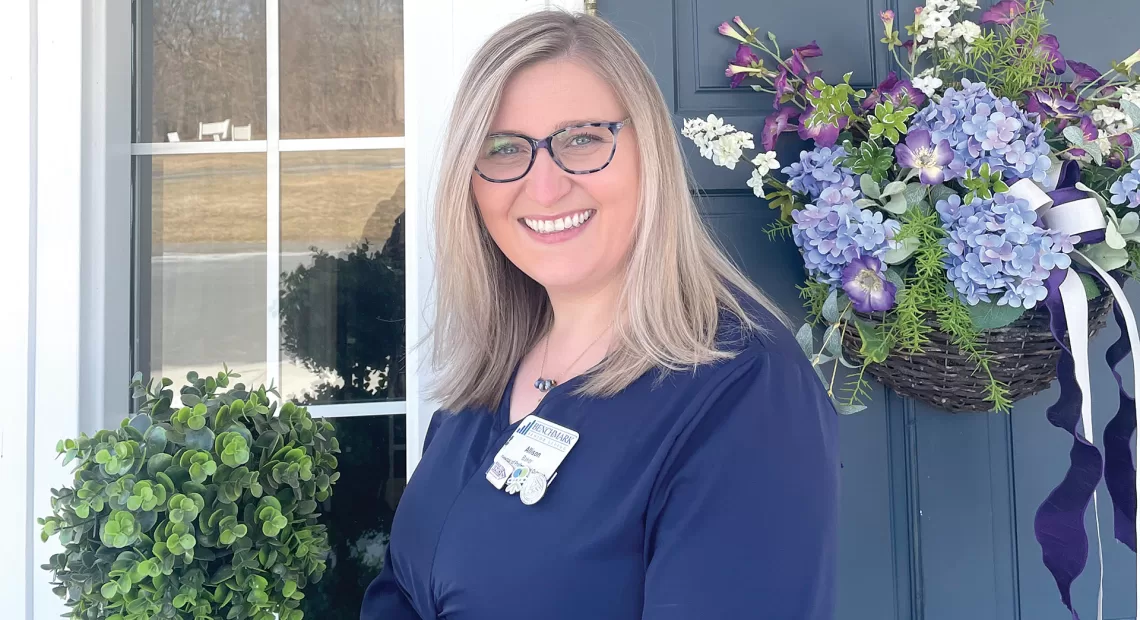







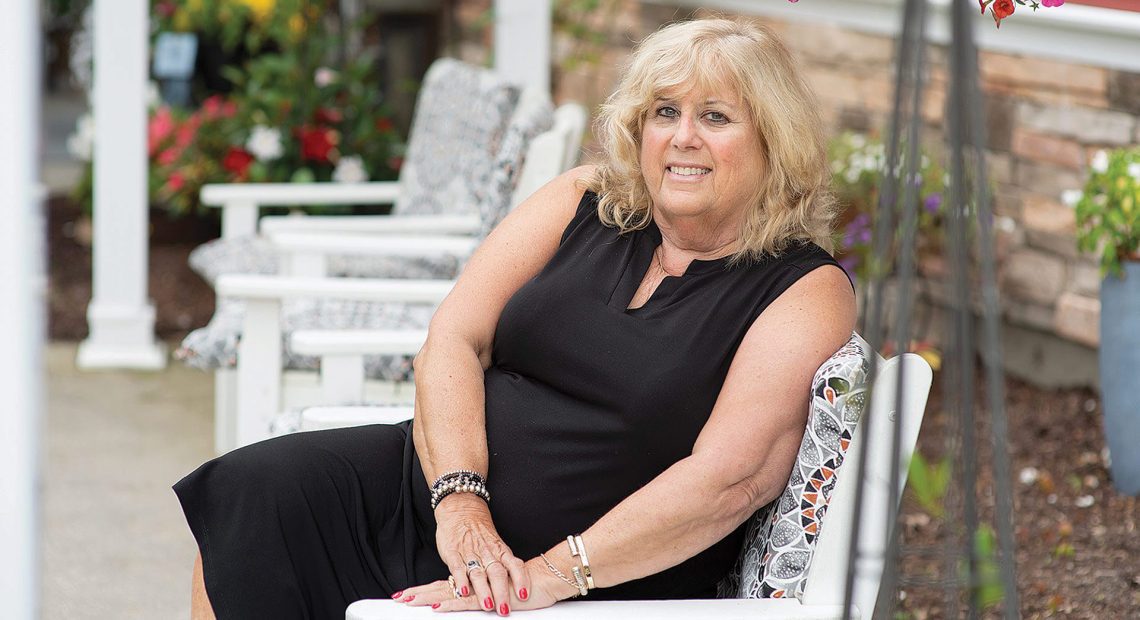
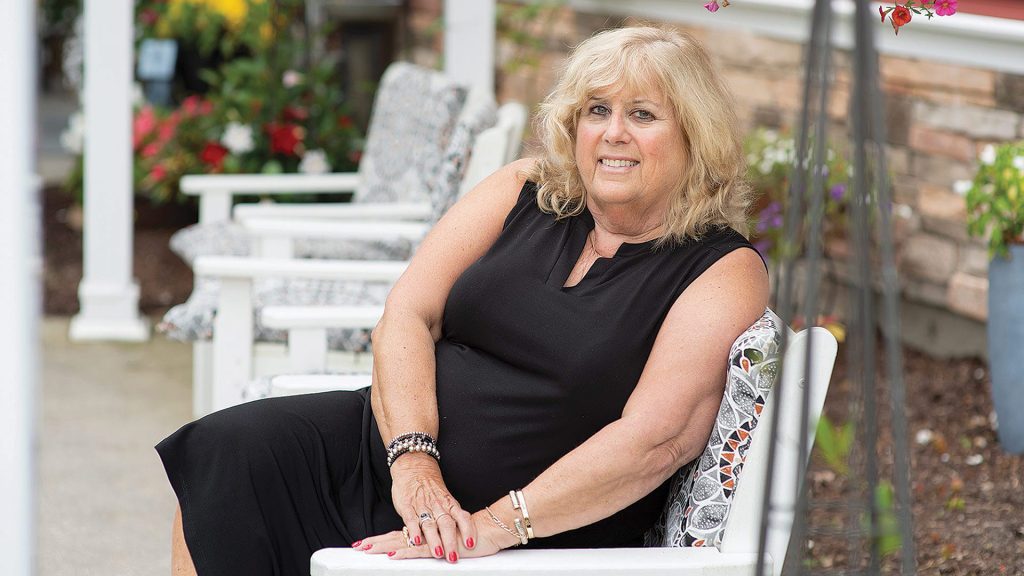

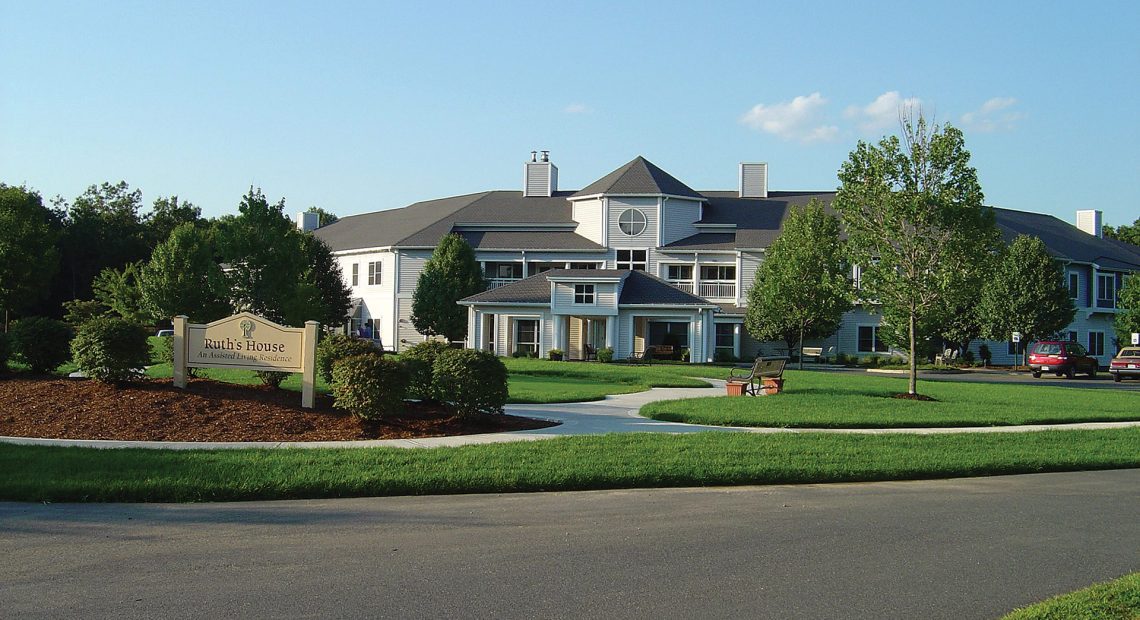

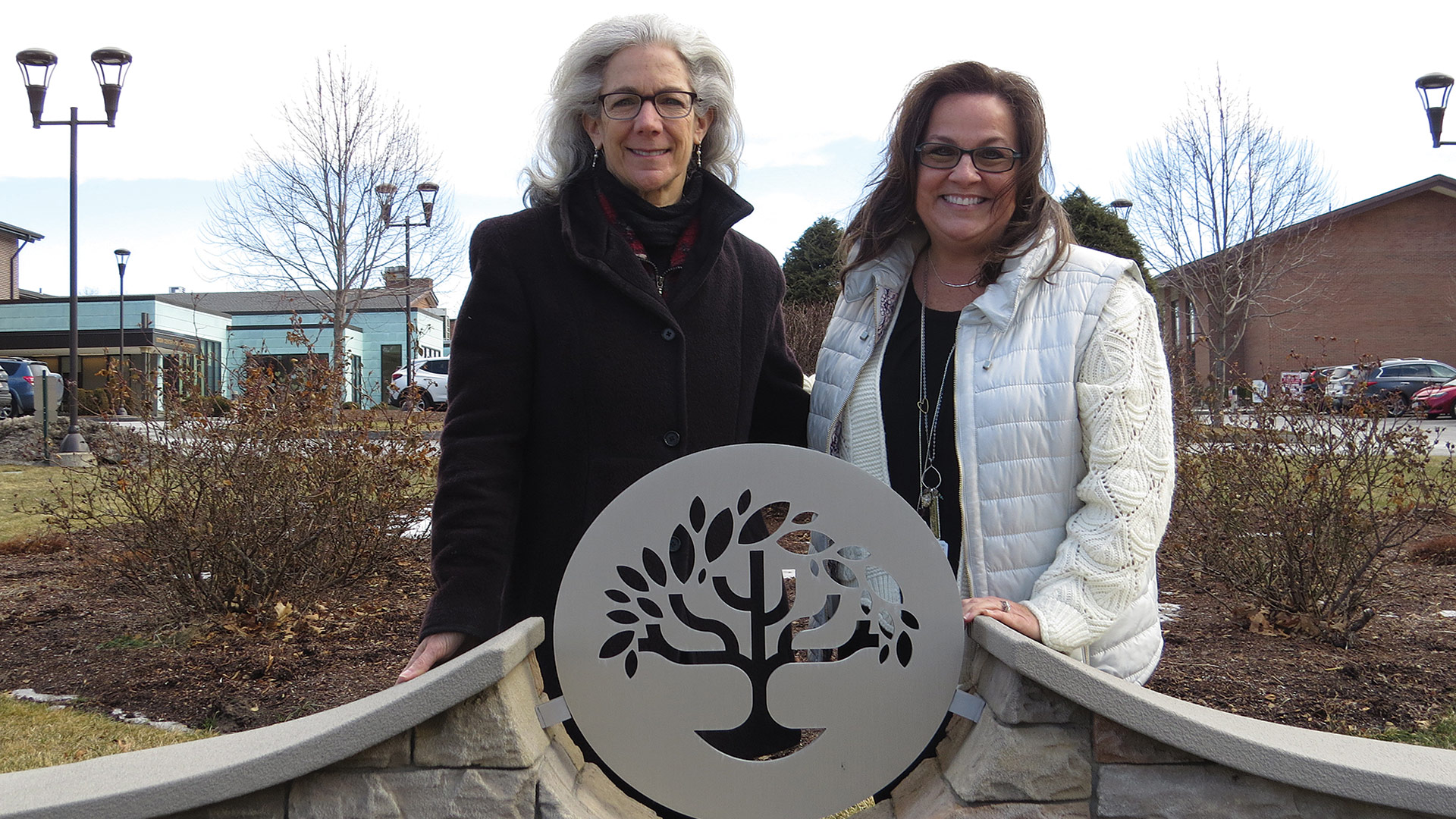
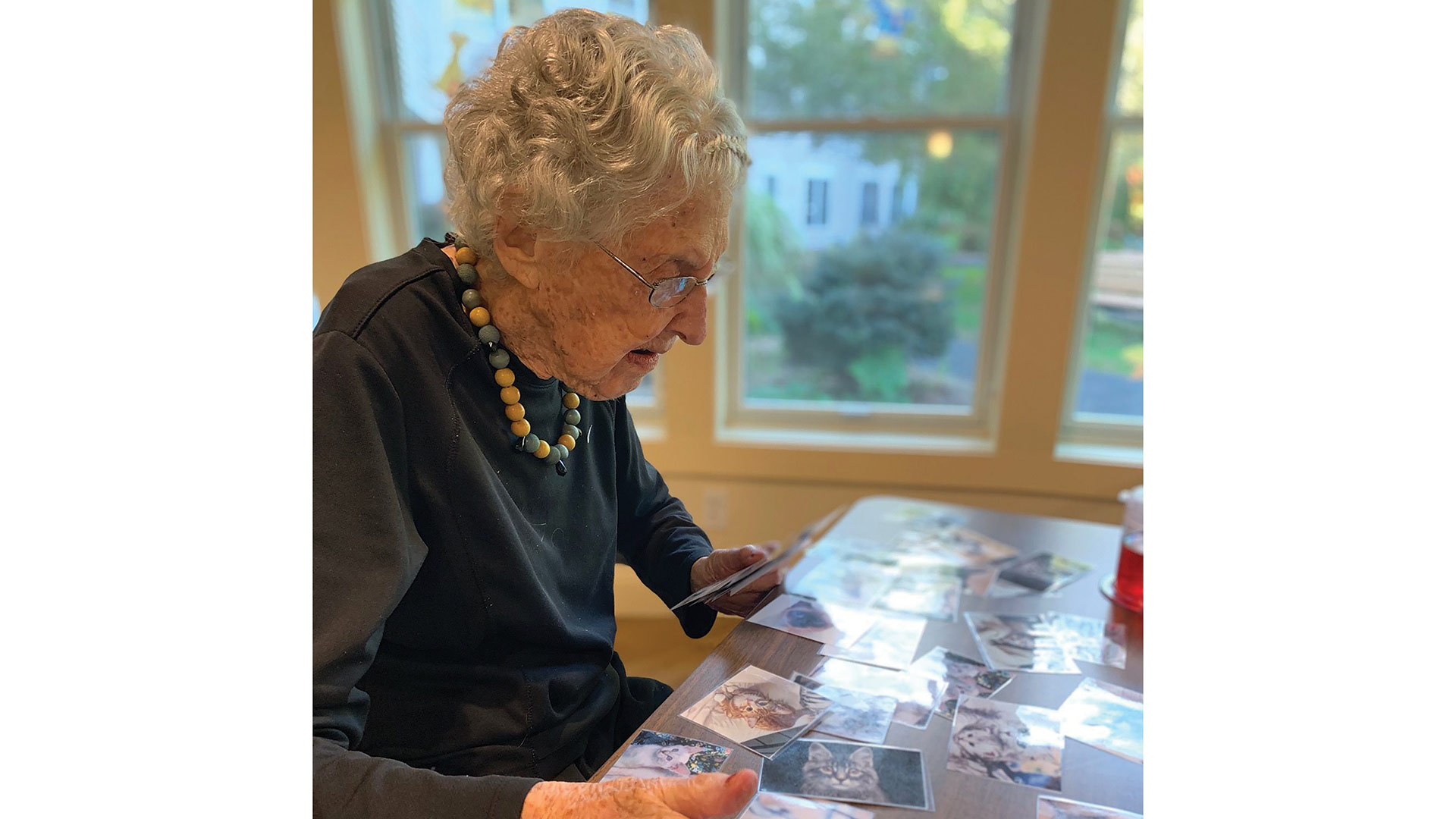
 “Someone develops Alzheimer’s disease every 68 seconds, with 5 million Americans affected, and the number expected to increase to 20 million by 2050.”
“Someone develops Alzheimer’s disease every 68 seconds, with 5 million Americans affected, and the number expected to increase to 20 million by 2050.”